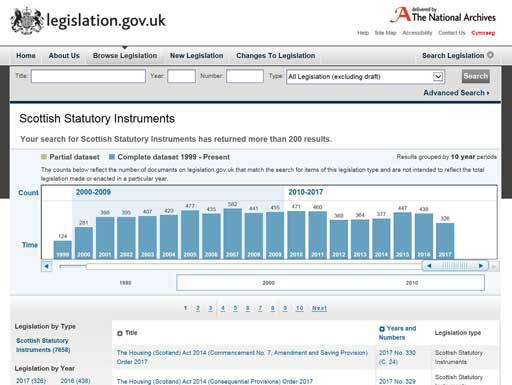2.2 Affirmative or negative procedure
Affirmative and negative procedures are important in scrutinising delegated legislation. Delegated legislation is a major source of law making. In the Scottish Parliament more than 300 pieces of delegated legislation are passed each year. Delegated legislation does not follow the same process as Bills so there is little public consultation although there may be consultation with experts in the particular area.
- The affirmative procedure means that delegated legislation is laid before Parliament in draft form. Approval of that draft by Parliament is needed before it comes into force (becomes law).
- The negative procedure means that the delegated legislation is signed by the Minister and then laid (go before) Parliament. Usually they come into force 28 days after they are laid.
The scope of delegated legislation varies considerably, from technical and procedural to much more wide-ranging powers.
Watch the following video which summarises the difference between primary and subordinate legislation and explores the work of the Delegated Powers and Law Reform Committee.
Transcript
[MUSIC PLAYING]

Take a moment and reflect on how many Acts of the Scottish Parliament there have been (you considered these in Week 3). Statutory instruments far outnumber them.

